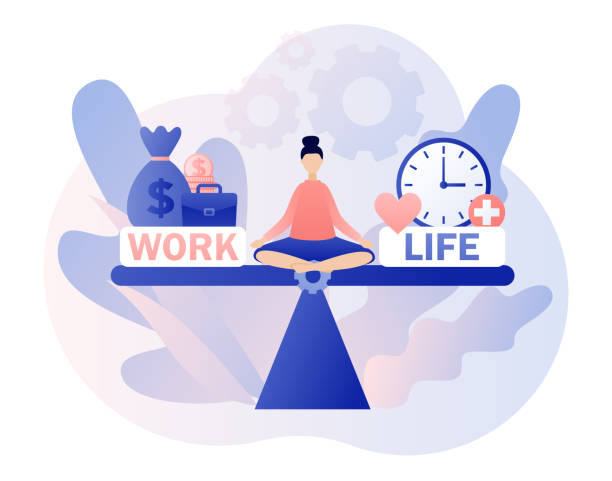- Empty cart.
- Continue Shopping
The Importance of Work-Life Balance for Mental Well-being

In today’s hectic world, finding a balance between professional commitments and personal life is essential for mental well-being. Achieving a harmonious work-life balance not only improves mental health but also enhances overall quality of life.
Reducing Stress and Preventing Burnout
1. Mitigating Chronic Stress
Maintaining a balance between work and personal life helps prevent chronic stress, which can lead to physical and mental health issues.
2. Avoiding Burnout
Balancing work and personal time prevents burnout, allowing individuals to maintain a sustainable level of productivity and engagement.
Enhancing Mental Health and Well-being
1. Promoting Psychological Well-being
Allocating time for relaxation, hobbies, and spending quality time with loved ones supports positive mental health.
2. Reducing Anxiety and Depression
Maintaining a balance between work and personal life reduces the risk of anxiety and depression, promoting a more positive outlook on life.
Improving Physical Health
1. Encouraging Healthy Habits
Having time for regular exercise, nutritious meals, and adequate sleep positively impacts physical health, which is closely linked to mental well-being.
2. Preventing Lifestyle-Related Health Issues
Balancing work and personal life helps prevent lifestyle-related health issues such as obesity, heart disease, and high blood pressure.
Enhancing Relationships and Social Connections
1. Strengthening Personal Relationships
Allocating quality time to spend with family and friends nurtures meaningful connections and supports emotional well-being.
2. Participating in Social Activities
Having time for social activities and hobbies outside of work promotes a sense of belonging and fosters a positive support network.
Fostering Personal Growth and Development
1. Pursuing Interests and Passions
Balancing work with personal time allows individuals to pursue hobbies, interests, and activities that contribute to personal growth and fulfillment.
2. Continual Learning and Skill Development
Having time for self-improvement and skill-building leads to a sense of accomplishment and boosts self-esteem.
Improving Job Satisfaction and Performance
1. Enhancing Focus and Productivity
Taking breaks and having personal time outside of work improves focus and productivity when on the job.
2. Increasing Job Satisfaction
A healthy work-life balance leads to greater job satisfaction, resulting in higher levels of motivation and engagement.
Setting Boundaries and Prioritizing Self-Care
1. Establishing Clear Boundaries
Setting boundaries between work and personal life helps prevent work from encroaching on valuable personal time.
2. Prioritizing Self-Care Activities
Allocating time for self-care activities like meditation, relaxation, and hobbies contributes to a balanced and fulfilling life.
Seeking Flexibility and Support
1. Advocating for Flexibility
Where possible, seek flexible work arrangements that allow for a better balance between professional and personal commitments.
2. Seeking Support from Employers
Employers can play a crucial role in promoting work-life balance by offering policies and resources that support mental well-being.
In summary, prioritizing work-life balance is fundamental for mental well-being and overall life satisfaction. By allocating time for personal interests, relationships, and self-care, individuals can nurture their mental health and lead more fulfilling lives. Remember, achieving work-life balance is an ongoing journey that requires conscious effort and prioritization. With mindful attention to both professional and personal needs, individuals can enjoy the benefits of a harmonious and well-rounded life.








